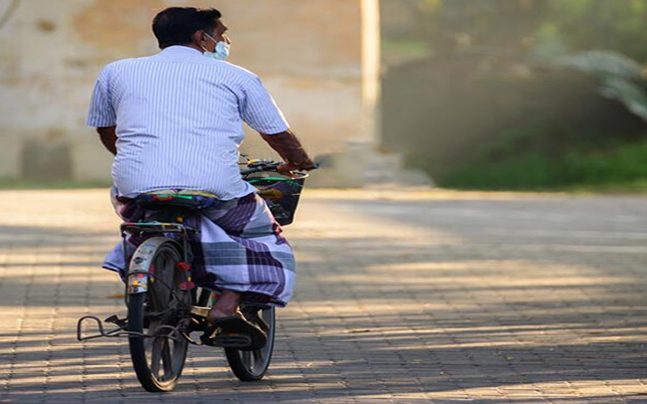For the last two weeks, Sri Lankan doctor Thusitha Kahaduwa has left his car in the garage and done his patient rounds by bicycle, spending hours each day criss-crossing the commercial capital Colombo.
The 41-year-old is among countless thousands, many of them middle-class professionals, who have switched to two wheels for everything from work commutes to grocery shopping after the country – mired in its worst economic crisis since independence in 1948 – all but exhausted its fuel supplies.
Advertisement
“First, it was two or three hours in a petrol queue,” Kahaduwa told Reuters. “Last time, about three weeks ago, I was in a petrol queue for three days.
“Buying a bicycle was an act of desperation.”
Sri Lanka’s hard currency reserves are close to zero, meaning imports of fertiliser, food and medicine for its 22 million population have also slowed to a trickle.
No oil shipments have arrived for about two weeks and the government – which has closed schools, told public employees to work from home and restricted fuel to essential services – has not said when the next ones are due. .
As a consequence, the number of bikes on Colombo’s streets has soared and, with stocks limited and demand rocketing, prices of new and used machines have more than doubled, three retailers said.
Spare parts and accessories like bike helmets and locks are also in short supply.
One shop owner, Victor Perera, said that he sold about 20 cycles a month up until May, when sales increased tenfold.
“Because of the petrol problem, everyone is asking for bicycles,” he said.
New supplies are limited because authorities have restricted imports to basic necessities to conserve what foreign exchange remains for as long as possible.
“The importation of bicycles is banned. So, the importers sold their stocks at high prices,” Perera said. “Now there are no more bicycles.”
The government is due to present a debt restructuring plan to the International Monetary Fund in August and then continue talks on a possible $3 billion bailout package, suggesting the crisis is far from over.
So Kahaduwa and many others are settling in for a long ride.
“I don’t think our country’s problems will be resolved anytime soon,” he said, “At least I get plenty of exercise now.”









